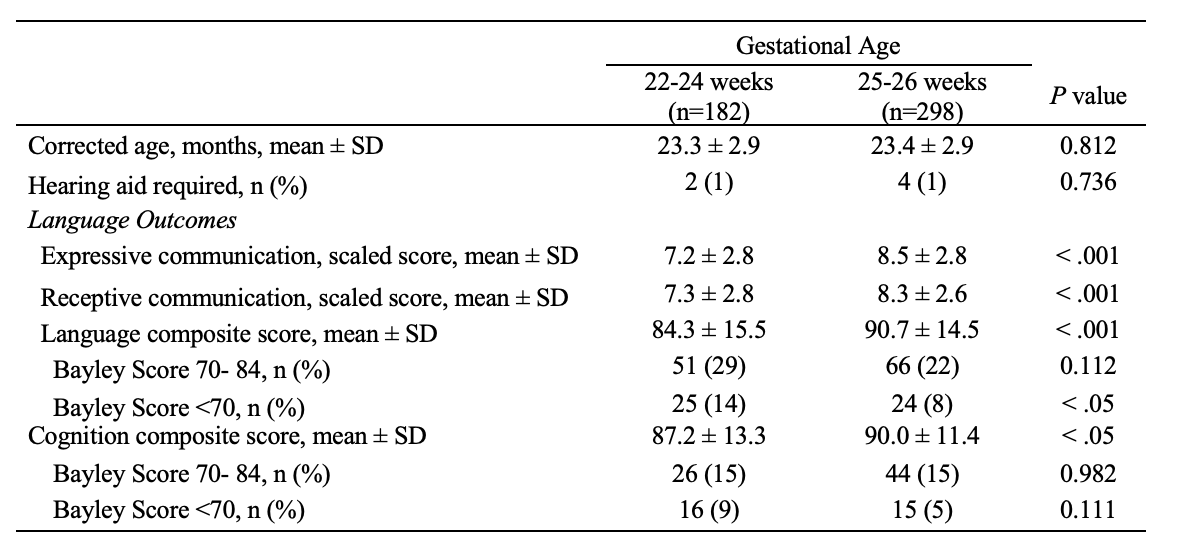Neonatology
Session: Neonatal Follow-up 4
549 - Early medical risks to language development in extremely preterm infants
Monday, May 6, 2024
9:30 AM - 11:30 AM ET
Poster Number: 549
Publication Number: 549.2899
Publication Number: 549.2899

Paige M. Nelson, MA (she/her/hers)
PhD Candidate
University of Iowa
Iowa City, Iowa, United States
Presenting Author(s)
Background: Survival rates for extremely preterm newborns—those born 28 weeks of gestation or less—have risen due to improvements in perinatal and neonatal medicine, specifically the use of antenatal steroids and improved ventilation strategies. Despite improved survival, preterm birth remains the leading cause of neurodevelopmental impairments in the United States. The most prevalent neurodevelopmental impairment for preterm infants are language delays and disorders, with rates ranging from 30% to 45%. Understanding the mechanisms that may confer risk for variability in the developmental course or language acquisition—especially in those born less than 28 weeks—is imperative to provide potential avenues for future intervention.
Objective: The current study aimed to study the effects of gestational age and the mediating role of severe neonatal morbidities on the language performance in extremely preterm infants.
Design/Methods: We conducted secondary analysis of data collected prospectively on infants born between 2006 and 2019 at a single midwestern tertiary care unit as part of the Eunice Kennedy Shriver National Institute of Child Health and Human Development Neonatal Research Network (NRN) General Database Study. The sample included extremely preterm infants born at < 27 weeks who received the Bayley Scale of Infant and Toddler Development, Third Edition assessment at 18-26 months corrected age. Multiple linear regression was utilized to determine language skill differences between extremely preterm infants born 22-24 and 25-26 weeks of gestation. Mediation analyses examined if neonatal morbidities mediated the association between gestational age and language performance. Covariates included maternal education, infant sex, plurality, and maternal antenatal steroids.
Results: Those born at 25-26 weeks (N=298) performed better than those at 22-24 weeks (N=177) on measures of expressive communication (8.5 ± 2.8 vs 7.2 ± 2.8), receptive communication (8.3 ± 2.6 vs 7.3 ± 2.8), composite language (91 ± 15 vs 84 ± 16), and cognition (90 ± 11 vs 87 ± 13). Medical morbidities that partially explained gestational age effects on expressive and receptive communication were retinopathy of prematurity, Grade 2/3 bronchopulmonary dysplasia, and cognitive skills.
Conclusion(s): Families of extremely preterm infants with history of ROP, moderate to severe BPD, and preterm infants born less than 25 weeks gestational age should be counseled on the specific increased risk of language impairment and receive proactive screening and intervention.

.png)
